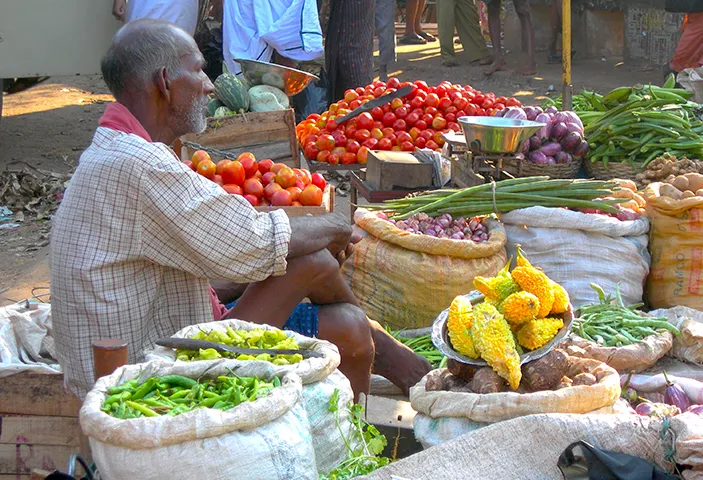 Contact us
Contact usIntent
Community
Studio Organo Concepts
About Us
Subsidaries
Studio Organo
TS RERA No.P02400003403.
TS RERA No.P02400003403.

Food miles essentially refers to the distance travelled by our food to reach our plate from the producers. It also refers to the impact it has on the environment by utilising the fossil fuels needed for transportation of the product to reach our retailer. Are there ways through which we could reduce food miles?
The ultimate way to reduce food miles to zero is to grow our own food. Permaculture gardeners attain maximum yield from their plots to cut down the need to shop.
The best way to provide nutrients to our food garden is by avoiding all chemical fertilizers. Carbon footprints can also be reduced with the use of organic compost made using food scraps from our kitchen.
“Pastoralism” is a quest to bring back nature into contemporary urban living. Productive gardening is a food revolution - the need of the hour - for switching to more healthy and sustainable lifestyle choices. It can be done on rooftops, balconies, and small plots in the backyard. By incorporating productive landscaping into community living, we are not only reducing the food miles but also adding value to ecological remediation.
Local vendors tend to stock up on produce from the local farmers as they lack the economy to import goods from remote areas. By shopping at the farmer’s market, we can not only avoid packaging and processing, refrigeration and heating (which consumes a lot of energy), but also support local businesses. We have the opportunity to talk to the vendor and get to know what goes into the production.
Avoid consumption of plastic-wrapped, preprocessed, canned or frozen goods. Frozen goods are essentially perishable goods that are pre-processed to be imported from areas afar. They are nutritionally deficient as well as have high amounts of accumulated carbon footprint.
It not only involves the fossil fuels consumed for the transportation of crops over long distances and energy consumed in the preservation of perishables, but also the energy and fuel spent in travelling to far off markets to purchase our daily essentials. Hence, it is essential to switch to a green mode of purchase by avoiding the long distances of transportation from the farmers to retailers and retailers to consumers.
Buying food items like grains and flour, which have a longer shelf life in large quantities not only reduces the food miles but also reduces the time and energy spent on frequent shopping. Collaborate with your neighbours in visiting local wholesale stores together, to avoid separate car journeys.
Most of the pre-processed packaged goods make use of ingredients from different sources to ensure preservation. By cooking from scratch, you use ingredients which are sold as single products without added preservatives.
Avoid consumption of processed frozen meat that is frozen with preservatives to prevent it from perishing during transportation over long distances. If required, we can switch to locally grown livestock.
When buying groceries and daily essentials from a supermarket, we shop without having knowledge of where the product originated from. Without the information on how and where the product has been processed, it is difficult to determine the food miles that have gone into manufacturing them. Hence, in order to reduce the carbon footprint, buy within the local markets, where the produce comes in from local farmers thereby keeping the food miles to a minimum.
By consuming produce that isn’t grown in season in our locality, we will be consuming products imported from remote areas. It not only increases the food miles but also affects the nutritional value of the produce. Hence the consumption of food sourced locally, when grown in their season has higher health and environmental benefits.
It is the need of the hour to be aware of the environmental degradation and to make mindful choices to reduce the carbon footprint created by the transportation of produce before it reaches our kitchen.
